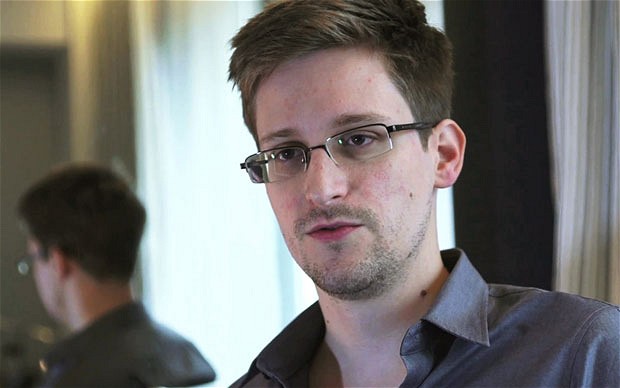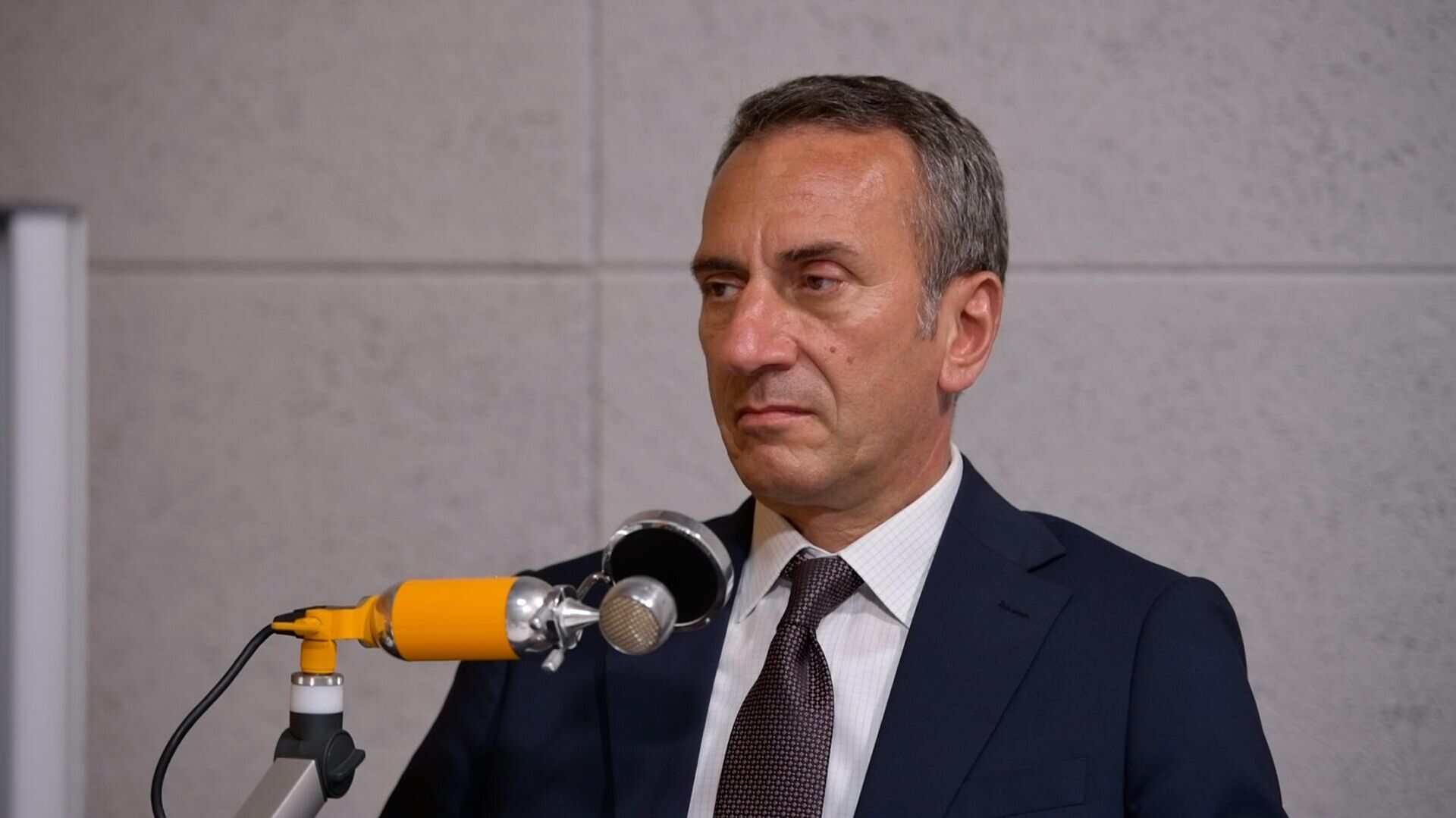
The Snowden Case as a Potential Disruptor of US-Russian Relations
The Snowden Case as a Potential Disruptor of US-Russian Relations
Edward Snowden, the contractor who worked as a systems administrator at a United States National Security Agency (NSA) facility in Hawaii, apparently flew into Moscow from Hong Kong on Sunday, June 23, and had a ticket booked to fly Aeroflot to Havana on June 24, but did not board. Russian and foreign journalists swarmed Moscow’s Sheremetyevo International Airport seeking Snowden, but not a single sighting has been reported as of the writing of this article on June 27. Russian President Vladimir Putin, speaking at a press conference during an official visit to Finland, announced that Snowden “is a transit passenger and is still in the transit hall” [of Sheremetyevo], he can buy a ticket to fly anywhere he wishes.” Snowden’s arrival at Sheremetyevo was a “complete surprise” to the Russian authorities, according to Putin. “It is lunacy,” exclaimed Putin, to suggest Moscow took any part in helping Snowden flee from the US authorities, who want Snowden for espionage (disclosing top-secret NSA programs that collect phone and Internet data). Putin affirmed, “Russia’s special services are not working with Snowden.” Russia does not have an extradition treaty with the US and cannot extradite Snowden, reminded Putin, “It would be better for all if he [Snowden] leave as soon as possible.” “Personally I would prefer to keep out of such questions,” Putin said, adding, “It is like shaving a piglet—lots of squealing and little wool” (Interfax, June 25). The joke about the piglet was popular in Russia in the 1950s and early 1960s (well known to Russians of Putin’s age and older), as connected to Soviet leader Nikita Khrushchev. It seems Putin used this proverb as a jab at the US to stop squalling so desperately about Snowden.
Yet, Putin’s version of events does not hold up to scrutiny. Snowden could not have disappeared without a trace at the Sheremetyevo airport on June 23 without the help of Russian special services, and in particular the Federal Security Service or FSB (former KGB), which commands the Russian Border Guard officers that are present when the hatch opens of any international flight arriving in Moscow. WikiLeaks, the website devoted to publishing and disseminating sensitive or secret information, announced that its representative Sarah Harrison accompanied Snowden on the Aeroflot flight from Hong Kong and “is escorting him at all times,” while “Mr. Snowden is not being ‘debriefed’ by the FSB” (RIA Novosti, June 26). Maybe he is not at present, since a credible debriefing of a spy defector would involve not only the FSB.
Apparently, Snowden was snatched from the plane as it arrived at Sheremetyevo, before the rest of the passengers were allowed to disembark and proceed to passport control, customs or the transit hall. Then, Snowden was placed in some secret secure environment, until his further plight is decided. A Russian journalist describes how he combed the transit zone in Sheremetyevo with many other colleagues and booked a room in the only place in the transit zone, where an ordinary person may find some seclusion—the Capsule Hotel “Air Express” in Terminal E. The hotel offers some 66 threadbare rooms (half without windows) at shockingly high prices to transit passengers who want to grab some sleep in a bed in between flights but do not have a Russian visa to take a room outside the terminal. The Russian correspondent walked the dim corridors of this hotel, calling out for Snowden, but only fellow journalists who seem to pack the facility nowadays, peeped out of the rooms. Capsule Hotel staff said Snowden appeared at the reception desk on June 23, but left almost immediately. On June 27, the Russian security services scanned the documents of all passengers in the Sheremetyevo transit zone, but allowed journalists with outdated boarding passes to stay (RIA Novosti, June 27).
US authorities have revoked Snowden’s passport and have promised to punish any nation that gives him refuge. Snowden, reportedly, cannot be given a Russian visa or buy a ticket to fly anywhere, since he does not have valid travel documents. This does not make much sense: Snowden is seemingly already being given special treatment by the Border Guard (FSB) and Aeroflot may issue him a ticket anytime at its discretion (Interfax, June 26).
Snowden’s revelations about the NSA eavesdropping has surely made him a valuable anti-American propaganda asset, but his value as an intelligence source is murky. Since the Cold War, defectors are treated with distrust in Russia. The Snowden story seems too good to be true: Landing suddenly in Moscow with apparently a trove of hard disk intelligence on NSA operations, chased in a bizarre world-wide hunt by the US authorities into Russian protection… It is clear the first instinct of a former (like Putin) or present KGB operative would be deep suspicion. The Russian security services may worry that Snowden is a plant and Washington’s protestation is orchestrated to place him in a position to feed the Russians disinformation yarns mixed with real revelations to make the yarns stick. To establish Snowden as a trusted source of NSA procedure, a real debriefing must be made with a polygraph, requiring lots of time and his full cooperation. Intelligence sources told Russian journalists that the Aeroflot nonstop flight to Havana flies through US airspace and the Americans could have landed the plane to arrest Snowden, if his presence is confirmed onboard (RIA Novosti, June 24). It is possible the same story was fed to Snowden to frighten or disorientate him into volunteering to stay in Russia.
Putin’s regime sees the US as its main enemy internationally and inside Russia, where Washington is accused of masterminding a possible regime change by pumping billions of dollars to the pro-democracy opposition and human rights organizations. Washington, on the other hand, is more concerned with emerging China’s power and terrorist threats, while a declining Russia is apparently seen as more of a nuisance than a deadly challenge. Last month, a US government official told Jamestown in Moscow that if Russia does not respond favorably to Barack Obama’s overtures, “the administration will forget about [Russia] and pay no attention.” The Snowden saga may change this and Russia may be elevated as a much more serious hazard, if Snowden stays in Moscow, instead of proceeding to Ecuador or some other exotic haven (RIA Novosti, June 26). It is a tough call for Putin and his spy colleagues to make: keep Snowden and face the consequences, or let him go and regret the lost opportunities.


